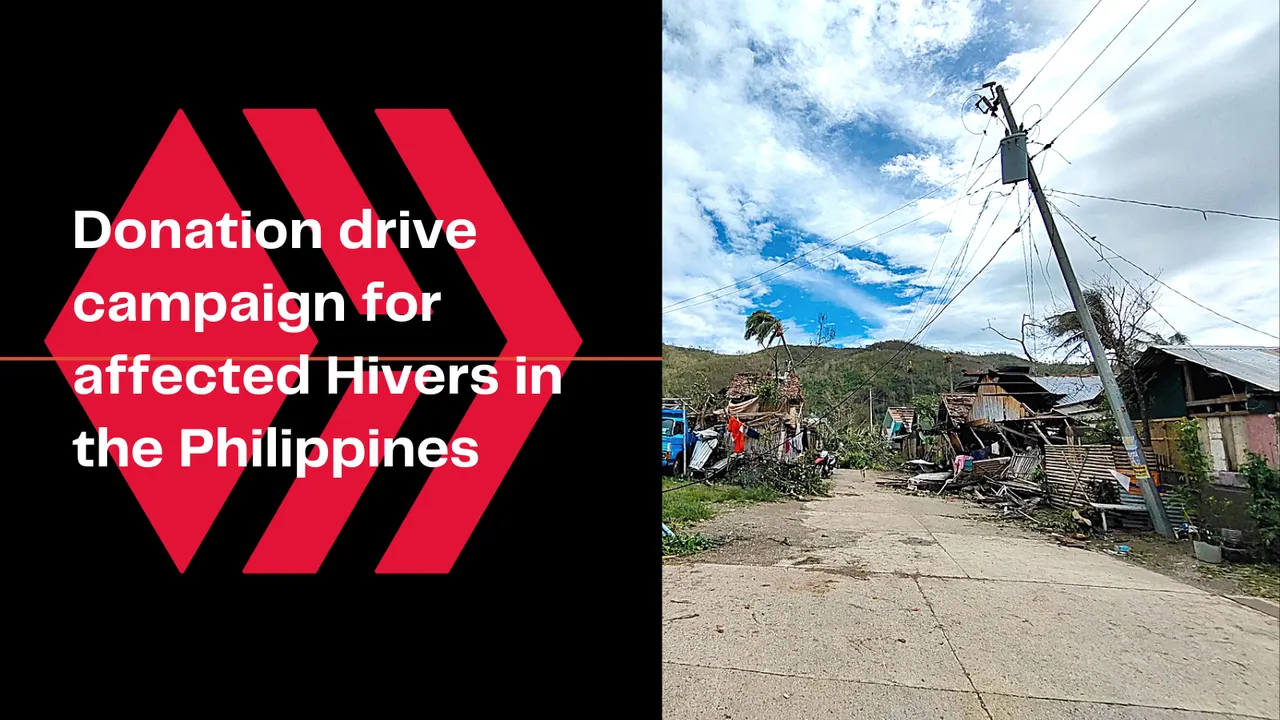
Note: All author rewards from this post will be given to the charity drive for the survivors of Typhoon Rai (Odette). I’m taking this opportunity to abuse the autoupvotes I get from my post and indirectly make the stakeholders that voted support the initiative. There’s no greater evil than this ulterior motive.
I’m fortunate enough to have our area relatively unaffected. There’s plenty of news that others have it much worse. People who have lived through these calamities would know the immediate impact of the storm is just the beginning because more problems would arise during the rehabilitation phase.
I had my share of experience in an evacuation center as someone that needed shelter and as someone that provided some services for the shelter during medical missions.
Here’s some of the stuff I see and these are just my own observed experiences:
People can go through all states of grief. You’d see people retell their stories and make remarks playing off how bad the situation they are really in. Denial phase is when they come into the center and tell you they were forced to evacuate but they don’t believe it’s bad. Some denials can take in the form of searching for a loved one they knew isn’t going to come back.
Anger would manifest when people let their lack of control in the situation get to them. These would often show when they get passive aggressive with officials providing the relief operations. They would get violent of the slightest thing.
Bargaining happens when they try to reason out that they need to go back home and save some stuff they forgot to bring in the center (even if it means braving the storm). Dealing with this phase can be quite tricky as people’s diplomatic skills come into play. You don’t want to frustrate them with the negotiation to regress them back into an angry state but you also don’t want to make their situation even worse.
Depression is when you see some of them do a fetal position sitting or sleeping silently in tears. Some stare blankly into space retreating into a world of their own probably processing the events that happened. Some just cry and verbalize what they really feel, these types would be the easiest ones to console because you know what’s on their mind. It’s the quiet ones you better watch out for, you won’t know when they’ll find a rope to hang. Some don’t have anything to lose anymore.
And lastly, the acceptance phase is when I see some small miracles can still happen. Filipinos have that reputation of keeping a smile despite how bad the situation they are in. My internal gauge when I know a person is going to be fine is when I ask them what their plans are after coming home, if they ever do have a home to come back to. If they respond with a productive plan to rebuild, there is a good chance that they’ll have it better than those who are still trying to cope.
The ability to plan ahead from the present is something suicidal or depressed persons have difficulty doing. If they give vague answers or things that trigger red flags, the right thing to do is refer them to professional help, debriefing from the trauma and the works.
Some other stuff you probably don’t often hear happening from evacuation centers:
Stealing is prevalent. People are placed in a situation where they lack resources and security. It can range from water bottles, small change, and money. Sometimes it can escalate to homicide if things get really desperate and victims fight back.
Rape. What starts off as prostitution can lead to this. Never underestimate how absurd one is willing to go just to acquire some resources at the expense of safety. The rise of sexually transmitted diseases during prolonged periods of calamity is often underreported because it’s not something openly discussed.
There’s also spread of diseases. We’re still in a pandemic and added to this are the prevalent diseases you would often encounter in crowded areas like diarrhea, flu, and other communicable diseases.
Exacerbation of existing mental illnesses. The amount of stress people can undergo during these times can trigger relapse or even start nervous breakdowns they never had before. The loss of loved ones, property, livelihoods, and even hope for the future is something that can cripple the mind to process it all.
So how can a silly upvote change the situation? On the long term, it doesn’t. But on the short term, a single HBD can secure one family an access to 2 to 3 liters of commercial drinking water, 1 loaf of bread, and some canned goods to get them through the day. It’s not life changing and probably underwhelming for people who lived without having these minor inconveniences but it means a lot for those at their lowest points.
The benefits don't necessarily have to go to the people already on Hive. I'll be leaving @ybanezkim26 and @indayclara to allocate the funds to those who really need it the most.
If you want to send tips, please send them to @hiveph account or on this post.
If you made it this far reading, thank you for your time.
Image used came from @mrnightmare89